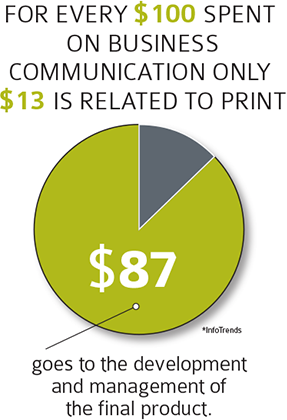You increase your response and conversion rates by personalizing your message, whether in print or email. But "personalizing" doesn't just mean using data to swap out images and text based on information you have in a database. Personalized printing has to feel personal. Let's look at four best practices that must be the foundation of all personalized print (and email) marketing efforts.
1. Follow the basics of good marketing.
Personalized print might be personalized marketing, but it is still good old-fashioned marketing, too. Ultimately, all of the elements—the creative, the list, the message, the offer, the segmentation, and the call to action—come together to determine success.
2. Focus on relevance, not data.
It doesn't matter how "personalized" a document is. If it isn't relevant to the person receiving it, it is worthless. Take marketing to sports enthusiasts. You don't want to try to sell baseball gear to a football nut. You can personalize a document to the hilt, but it's a waste of print and postage if it's not relevant.
3. Get to know your customers.
The more you know your customers, the more relevant your message can be. What don't you know about your customers that might allow you to be more relevant in the future? To find out, do a customer mail or email survey. Purchase data from a third party. Set up a form on your website. Ask questions and get feedback that will let you reap better results over the long term.
4. Invest in your data.
To get personalization right, you need to invest in your database. This takes time and resources, but it is one of the most important investments. Develop a primary database, refine it, add variables, and keep it clean and updated. Make sure all of the new information you gather goes back into the database to be used in future marketing programs. You don't need to be an expert in data to develop a significant data set. That's where we can help.
Remember, personalization is a powerful tool, but it cannot work alone to get the big pay-off!



